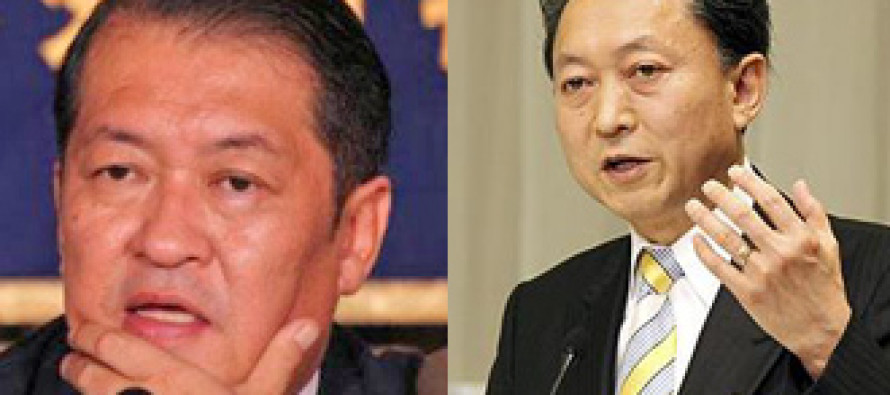Brothers set to be Japan’s Prime Minister and the Opposition Leader

Japanese voters have swept the conservative government of Liberal Democratic Party headed by Prime Minister Taro Aso. The LDP except for a brief period in 1993 ruled the country since 1955.
Japan’s usually risk-averse electorate, frustrated with the country’s worst post-war recession, punished Aso at the polls. The voters wanted a change from the policies of LDP which brought to them recession, unemployment and uncertainty in their life style.
Democratic Party of Japan, centre-left Party of Japan ran a reformatory programme during election campaign. The party wants to reduce the power of the bureaucrats and businesses in the country. The party backs the decentralisation of power to the local level and a pragmatic foreign policy with all Asia’s neighbours.
The DPJ has signalled a solid but less subservient partnership with traditional ally the United States and a desire to boost its regional ties, promoting a European Union-style Asian community.
Leaders across Asia yesterday welcomed the historic shift in power after Japan’s general election and sought closer ties with Tokyo, with only North Korea sounding a note of dissent.
DPJ has been able to resonate with the feelings and sentiments of Japanese voters and it won decisively. The DPJ won 308 seats in the powerful 480-member lower house in the 30th August poll while LDP secured only 119 seats.
Prime Minister Taro Aso, conceded defeat and would step down as president of the Liberal Democratic Party.
Hatoyama, 62, who is expected to be confirmed by parliament as prime minister in about two weeks, is set to form a coalition with smaller partners such as the Social Democratic Party and the People’s New Party, although it is not necessary for him to do so but because before election he committed to the smaller parties to take them on board if his party wins election.
National Politics could be with brothers:
With Taro’s resignation from LDP party, national politics could become a Hatoyama affair.
Yukio Hatoyama 62, heads the winning party-Democratic Party of Japan (DPJ) and would become the Prime Minister of the country. His younger brother Kunio Hatoyama, 60 could lead the LDP Party.
Both the brothers have politics in their blood. Their great-grandfather was a speaker of the lower house of parliament (Diet).Their grandfather was Prime Minister in 1954-56. Their father was a Foreign Minister.
They are perhaps men in Japanese politics. Their mother Yasuko Ishibashi, is the daughter of founder Bridgestone tyres and part-heiress to his fortune.
The younger brother Kunio was always the one everyone tipped to follow the family heritage. After graduating from Tokyo University’s law school, he went to went straight to work for the LDP faction leader Kakuei Tanaka.
DPJ leader and Prime Minister Yukio has been more academic. He went to Stanford University in California and earned a Ph-D degree in engineering. He worked initially Lecturer in a university. In 1986 he was persuaded to take over his father’s constituency in the northern city of Sapporo.
In 1993 LDP lost power for 10 months and the two brothers left the party. In 1996, they joined to form what is now DPJ. Yukio remained and became a party leader in April.
The younger brother Kunio was ambitious and saw that the DPJ might not get power because of the business-friendly LDP has been entrenched in politics. Therefore he left DPJ and returned to the LDP and held several ministries until June.
Challenges for the new government:
Yukio Hatoyama is under heavy pressure to get to work quickly on addressing the huge hurdles facing this fast-greying country and pulling it out of its long economic malaise. He promised to build consensus and avoid ‘arrogance’ in government after ousting Japan’s conservative old guard.
‘We will not just bulldoze our policies,’ he told public broadcaster NHK. ‘We must exercise patience and seek people’s understanding because we have been given such latitude.’
DJP’s victory is a pivotal moment in its history because it has created a competitive two-party system in the country. The election success could be as bold and significant as the last two great Japanese events—the Meiji restoration in the late 1800s and the post-war economic revival.
By Barrister Harun ur Rashid
Former Bangladesh Ambassador to the UN. Geneva


